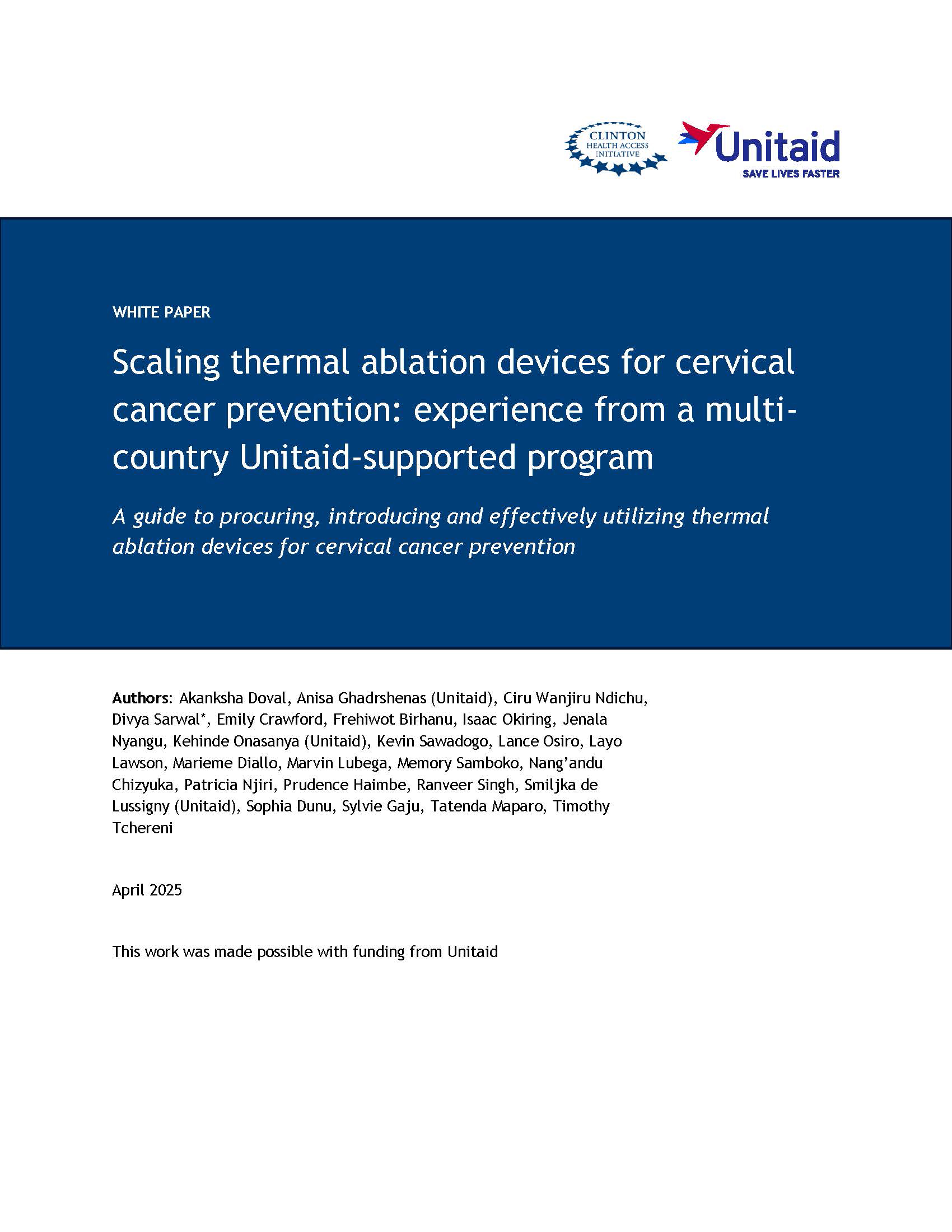A white paper released by Unitaid and the Clinton Health Access Initiative (CHAI) today showcases the transformative potential of thermal ablation technology in cervical cancer prevention. The paper, which draws on expertise from eight African countries and India, shows the deployment of thermal ablation devices in low-resource settings is proving to be a practical, cost-effective solution at a time when health budgets are under increasing strain.
Thermal ablation devices are easy to use, battery-powered, and suitable for primary healthcare facilities and outreach settings. They provide an alternative method for removing pre-cancerous cells on the cervix, replacing cryotherapy, which requires heavy equipment and compressed gas.
Treatment with thermal ablation devices costs just one-fourth of cryotherapy. Because they are simple to operate, non-specialist healthcare staff can be trained on their use, thereby improving access to cervical cancer preventive treatment at lower-level health facilities.
Across Unitaid’s cervical cancer investments with CHAI and the SUCCESS programs in 14 countries, the programs have helped train at least 11,000 health workers in screening and treating women for cervical precancer. Partner governments have integrated thermal ablation devices into national screening and treatment guidelines and clinical curricula, with 85% of the devices placed in primary and secondary healthcare facilities. In total, Unitaid’s investments have supported procurement of over 6,000 thermal ablation devices across 28 countries in the last four years.
The thermal ablation approach is proving particularly beneficial in bringing preventive services closer to underserved communities and reducing loss to follow-up among women who test positive. These tools provide cost-effective methods for low- and middle-income countries to scale up sustainable cervical cancer prevention programs.
This work is part of Unitaid’s US$80 million investment since 2019 to increase access to screening and treatment for cervical precancer.
The full white paper and additional resources are now available for download.
